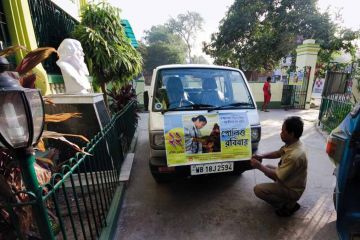Deindustrialisation came to the hinterland of
West Bengal decades ago, and has remained, an unwelcome, uneasy settler. Trade
unionism, poor management and liberalisation of the economy are some reasons
for the death of industries. The breakdown of the Soviet Union, which had been a major consumer of
finished goods from Communist-led Bengal also led to a rapid decline in the
fortunes of the mills and factories. Howrah—once called “Sheffield of the East”—and Hooghly saw rapid growth
i





